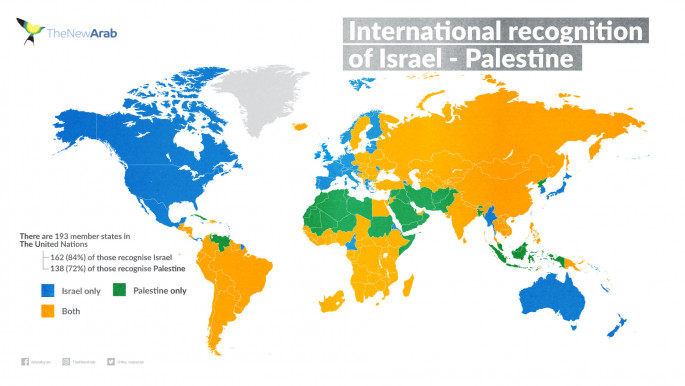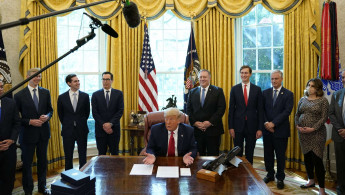US says Sudan to normalise ties with Israel, in new breakthrough for Trump
The United Arab Emirates and Bahrain signed an accord at the White House last month to normalise relations with Israel but Sudan is arguably more significant as an Arab nation that has been at war with Israel.
Trump announced the agreement by Sudan's year-old civilian-backed government moments after he formally moved to end the nation's designation of a state sponsor of terrorism, which was a major goal for Khartoum.
Reporters were escorted into the Oval Office where Trump was on speakerphone with Sudan's leadership and Israeli Prime Minister Benjamin Netanyahu, a close ally of the embattled Republican president.
"We are expanding their circle of peace so rapidly with your leadership," Netanyahu was heard saying.
Trump said: "There are many, many more coming."
A senior Trump aide, Judd Deere, said that Sudan and Israel "have agreed to the normalization of relations."
As part of the deal to get off the terror blacklist, the White House said that Sudan's transitional government had deposited $335 million to compensate survivors and family members of anti-US attacks that took place when former dictator Omar al-Bashir welcomed Al-Qaeda.
"Today represents a momentous step forward in the United States-Sudan bilateral relationship and marks a pivotal turning point for Sudan," a White House statement said.
The deal with Sudan allows "for a new future of collaboration and support for its ongoing and historic democratic transition," it said.
 |
| [Click to enlarge] |
Sudan's civilian prime minister, Abdulla Hamdok, thanked Trump on Twitter without mentioning recognition of Israel - a step he had earlier said he was not empowered to take.
"We're working closely with the US administration & Congress to conclude the SSTL removal process in a timely manner," Hamdok said, referring to the list of state sponsors of terrorism.
In Khartoum, a government source said that the call involved Trump, Hamdok, Netanyahu and Sudan's top general, Abdel Fattah al-Burhan.
Friday's announcement went ahead despite overwhelming public opposition in Sudan to formalising ties with Israel.
Earlier this week, the seventh annual Arab Opinion Index (AOI) revealed that 77 percent of Sudanese people oppose normalisation, with most respondants saying that the Palestinian issue is the issue of all Arabs.
Historic step
Trump had announced his plan to delist Sudan on Monday through Twitter. But in the days before he formally took the move, Israel sent a delegation to Khartoum to discuss normalization.
|
|
Trump, who is trailing in the polls ahead of the November 3 vote, has used his leverage over Sudan to press for recognition of Israel.
Secretary of State Mike Pompeo voiced hope on Wednesday that Sudan would "promptly" recognize the Jewish state - a major cause for Trump's evangelical Christian base.
Bahrain and the United Arab Emirates had long enjoyed quiet relations with Israel but a move by Sudan is especially significant in light of the nation's history.
Sudan played a small part in Arab-Israeli wars and, after Israel's decisive victory in 1967, Khartoum was where the Arab League issued its famous "three no's" - no peace, no recognition and no negotiations with Israel.
Sudan has been seeking for years to remove the designation as a state sponsor of terrorism, which severely impedes investment as few foreign businesses want to risk the wrath of US prosecution.
With Trump's formal move, Congress has 45 days in which it can pass a resolution to object to the delisting.
Congress is not expected to block the delisting but it must also approve legislation to grant Sudan immunity from further claims.
Until then, the $335 million will be held in an escrow account.
The money includes compensation to survivors and family members of those killed in Al-Qaeda's twin attacks on the US embassies in Kenya and Tanzania in 1998.
Follow us on Facebook, Twitter and Instagram to stay connected





 Follow the Middle East's top stories in English at The New Arab on Google News
Follow the Middle East's top stories in English at The New Arab on Google News
![Israeli forces ordered bombed Gaza's Jabalia, ordering residents to leave [Getty]](/sites/default/files/styles/image_330x185/public/2176418030.jpeg?h=a5f2f23a&itok=_YGZaP1z)

